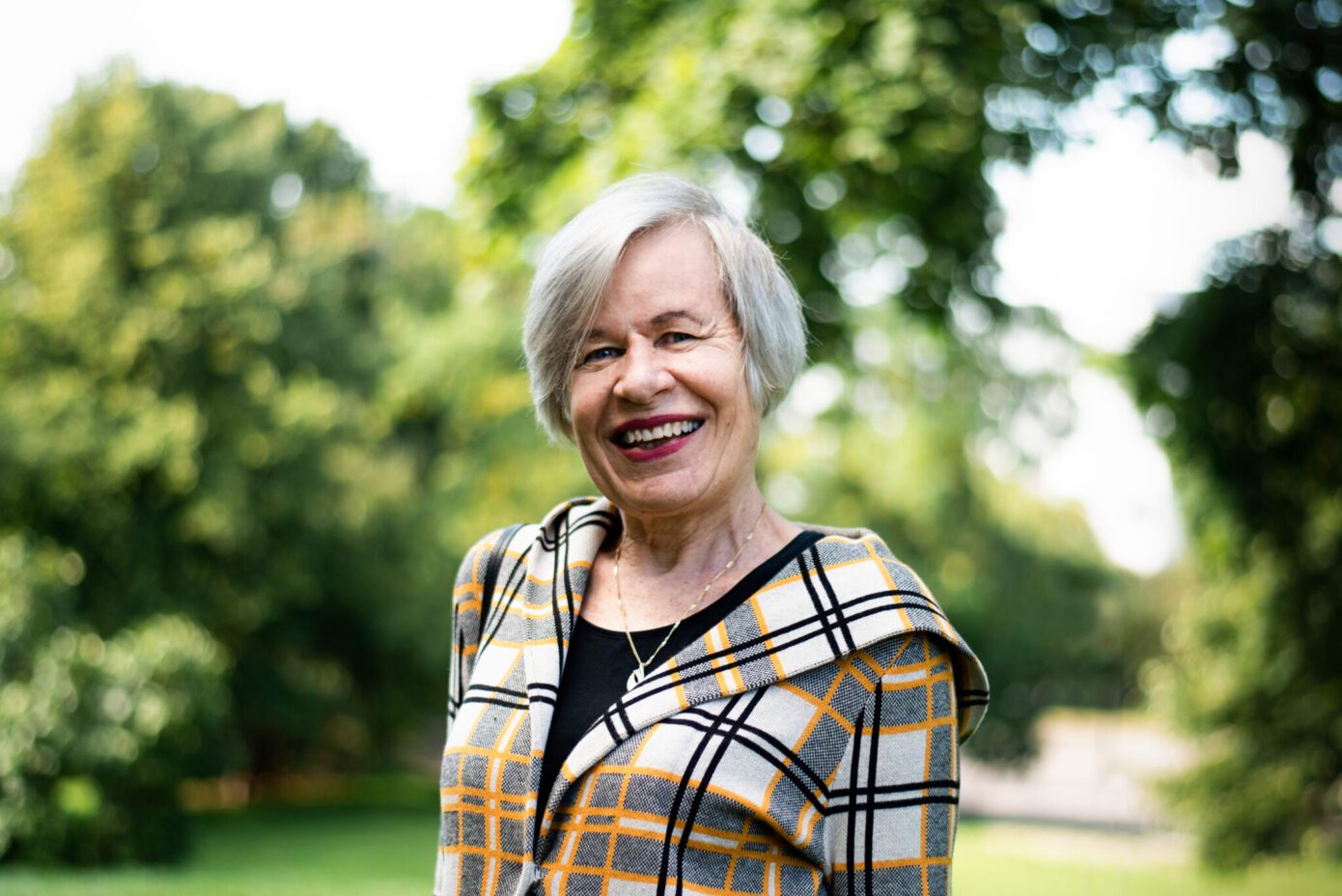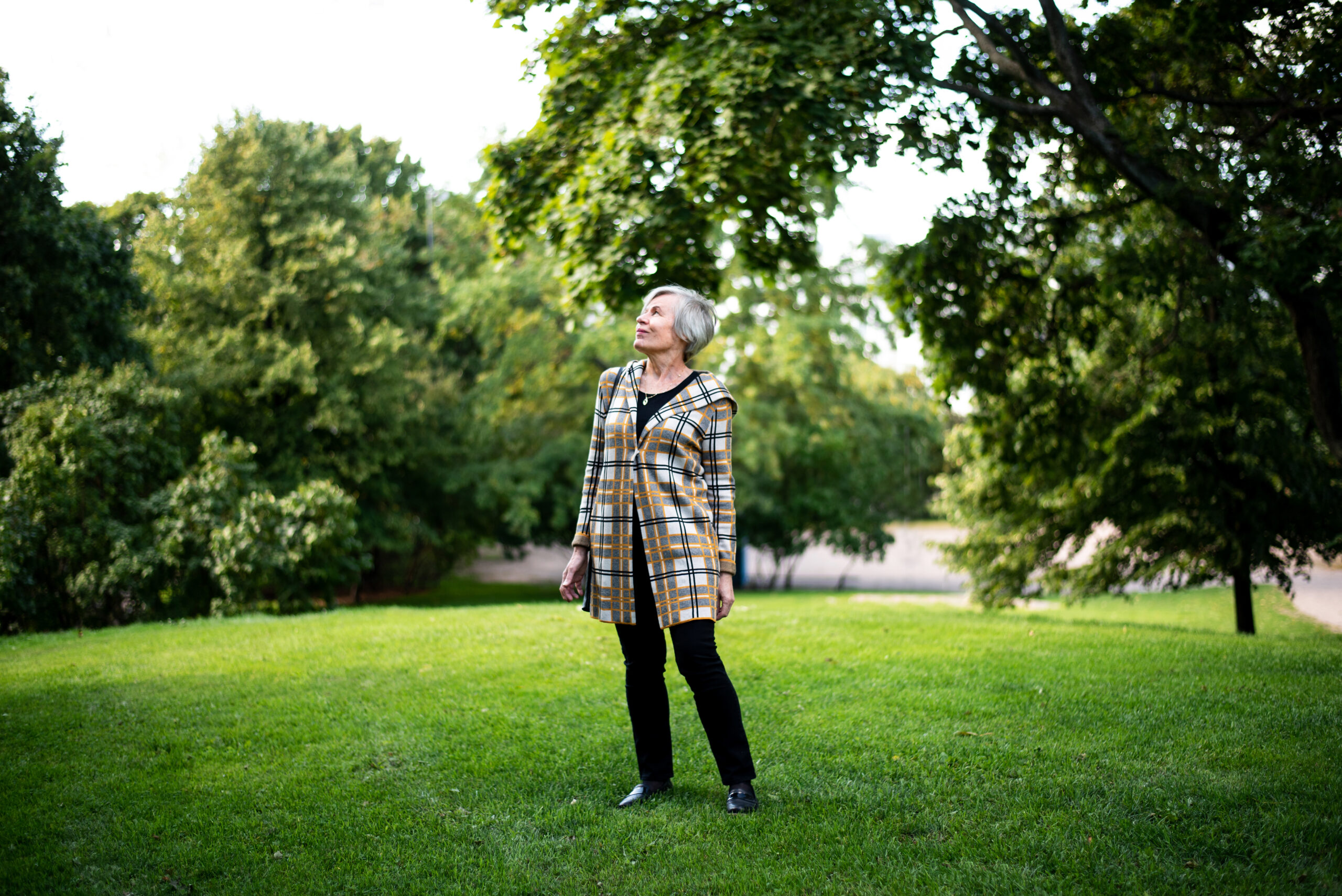Tellervo Kylä-Harakka-Ruonala is a mediator between economics, people and the environment, and she has been with the Nessling Foundation for over 30 years, from the committee of experts to the governing board. During her time as Chairwoman, Kylä-Harakka-Ruonala often rushed from board meetings to the airport, so that she could fly to Brussels to her work in the European Economic and Social Committee. Although her working years are officially behind her, her enthusiasm to share her skills and knowledge and learn new things is as strong as ever.
You were asked to be a part of the Nessling Foundation’s committee of experts in 1990 to represent the field of industry impacts on the environment. What were your thoughts at the time?
“I had just presented my dissertation on the mathematical modeling of the effects of industrial activities on aquatic organisms, but I was not a professional researcher. I thought about whether I had the competence for the job. How could I be on the committee to evaluate the applications of other researchers and make decisions about such important things as other people’s livelihoods?
The image of the Nessling Foundation as a traditional and respected foundation did little to ease the pressure. I had learned to recognise the Nessling Foundation as a respected, prestigious foundation that supports research and as a stable research funding foundation.
On the committee of experts, I soon noticed that evaluation worked smoothly and that my own values aligned with other experts. I felt that working on the committee was important and carried a lot of responsibility, but I also felt that it was enjoyable. Despite the Foundation’s prestigious reputation, the group had a relaxed and constructive atmosphere and there was never any nitpicking! And there still isn’t.”
You have seen the changes in environmental issues and the business sector during your decades of work, not only in the Foundation, but also in Finland’s environmental administration, the Confederation of Finnish Industries and most recently in the European Economic and Social Committee. What kinds of changes have you observed in your field during all these years?
“The terms have changed many times, but the foundational goals are the same: during the last century, people promoted clean technology and eco-competitiveness and eco-export, while nowadays, the discussion has shifted to the circular economy, carbon handprint and green transition. We need new terms to maintain interest and enthusiasm.
My long career in the Confederation of Finnish Industries and co-operation in Brussels have taught me that people who come from very different backgrounds and have very different interests can come to an understanding – as long as the discussion is analytical and based on solid information. The Nessling Foundation has an important role in this regard as a foundation that provides funding for research and shares research. In my years, I have also seen how environmental research has become multidisciplinary and interdisciplinary.
At the same time, people have become more aware of the global scale of issues. The EU’s share of the world’s CO2 emissions is only under 10%, but that does not mean that the emissions should not be reduced. However, I think we also need to have an impact on the remaining 90% through politics and the exporting operations of companies.
Companies must have a good environment for innovation, investment and internationalisation. At the same time, we must aim to improve people’s well-being and work toward a better environment. I firmly believe that it is possible to work in a way where all three goals are met. We cannot afford to compromise on this ambition.”
(story continues after the picture)

You began working on the Foundation’s governing board in 2000, and you were Chairwoman from 2013 through 2020. How has the governing board’s work changed during that time, and what would Maj and Tor Nessling think of it?
“The governing board is responsible for ensuring that the Foundation’s property is managed appropriately and that funding is used to fulfil the Foundation’s purpose. As times have changed, however, we have had to reinterpret that purpose.
I sometimes do a thought exercise. If I were Maj and Tor Nessling, what would I think of this direction? I believe that as progressive people, they would understand the Foundation’s actions during each time period. The basic principle is the same, even if our way of doing things changes.
If research in the environmental field has become more multidisciplinary and interdisciplinary, we can also see a change in the Foundation’s activities: research and the conditions for doing research are being promoted in new ways. During these decades, in addition to individual grant projects, the Nessling Foundation has directed research funding to large joint projects with other organisations and actors. The themes of responsible investment have become important in the Foundation’s property management. Furthermore, we have increasingly put more emphasis on communications: openly sharing information about research and the Foundation’s activities outside the Foundation.
The Nessling Foundation is very nimble nowadays. That said, the stability that I got to know in the 90s has not gone anywhere: I think that the stable foundation, in particular, allows the Foundation to adapt with the times.”
Your term of office as a member of the European Economic and Social Committee (EESC) has ended, but you are still an expert advisor in the EESC. You could say that after decades, you have returned to your role as an expert, right?
“Sometimes I think about whether expert is a good term to describe me after my long-term leadership work. My skills are based on combining many things and perspectives, not on a deep knowledge of individual matters. Then again, maybe that is exactly what modern expertise is. I also believe in lifelong learning: In recent years, I have completed some open online courses about artificial intelligence, for example. Digitalisation offers great new opportunities!”
Pictures: Eeva Murtolahti
Get to know the other board members
Niina Bergring
Simo Honkanen
Timo Kairesalo
Johanna Kentala-Lehtonen
Tellervo Kylä-Harakka-Ruonala
Pertti Lassila
Jari Niemelä
Niko Soininen
Ilari E. Sääksjärvi
Tuula Varis


